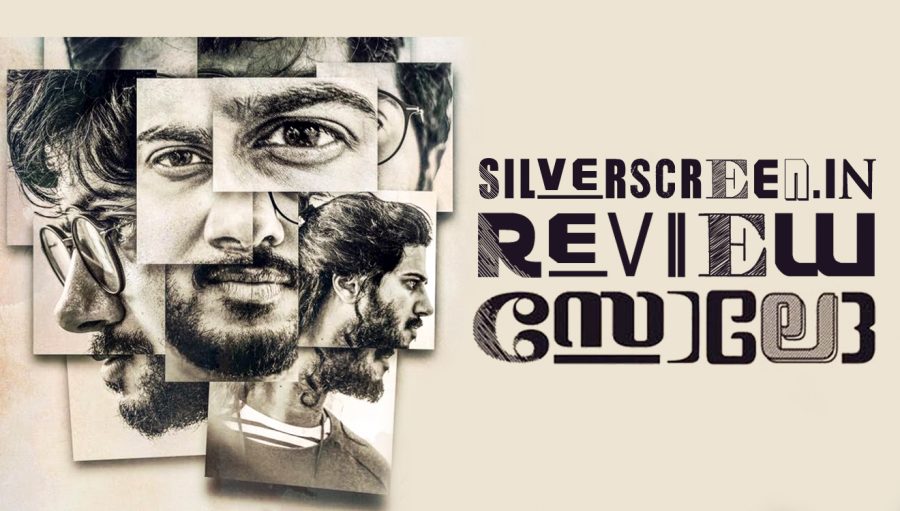Bejoy Nambiar’s Solo is a portmanteau of stories of four different men, played by Dulquer Salmaan, who lose their women at various stages in life. Nambiar is fixated with how these men react to tragedy – the grief of the man who loses his wife at childbirth, the vengeance of the husband whose wife dies for the fault of others, the repressed gloom of the son who is separated from his beloved mother as a child, and the wounded ego of a young man whose girlfriend walks out on him one fine day.
Solo has a powerful, occasionally flashy soundscape that grows taller than the film altogether. For every moment, every situation, there is a music track, carefully composed and blended to the narrative. For the most part, Solo belongs to the 11 composers and technicians who worked in the sound department.
The writing, however, isn’t very smart, and sometimes, it slips into pure inanity. There is an absence of reason in many parts of the film, and often, you see the film’s drama punching above the weight of the situations. There is an ensemble cast, consisting of talented actors like Nasser, Suhasini and Manoj K Jayan, whose presence in the film are more or less inconsequential, for Solo is a soulless film that thrives on being flatulent.
Nambiar has inserted an exotic Shiva analogy to his stories. His characters are named after the various other names of Shiva – Shekhar, Trilok, Shiva and Rudra. The stories are linked to the four elements – Water, Wind, Fire and Earth. Blame it on the narrative that fumbles a lot, but what shines brightest in the stories is the inflated male ego of the protagonists whose obsession with their women turns out to be nothing, but an expression of narcissism. They make blatant claims to the women – “she belongs to me” and “she is mine” – throughout the film. Nambiar’s men do not need their women as much as they want to own them.
While the stuttering Shekhar is the most endearing of all characters, it’s Shiva who commands your attention. It’s in this segment, which unfolds in Mumbai, a territory Nambiar is more familiar with, that the film gains some momentum and credibility. Shiva, a brooding young henchman, isn’t much of a talker. There are intense, quiet moments in the film that testify how good an actor Dulquer has become. For one, when he is watching a CCTV footage of his father’s murder, Shiva’s face betrays the slightest hint of emotion. Otherwise, he could well be carved of stone.
The strongest moment in the film also falls in this segment. Sai Tamhankar, who plays the partner of a gangster (Qaushiq Mukherjee), turns mother to a motherless young man for a night after he witnesses his brother succumbing to gunshots. With a poignancy that is unseen in her initial scenes, she lets him sleep on her lap.
The feat of Shiva can also be attributed to cinematographer Sejal Shah’s formidable camera that moves on and around the characters, and through the dark narrow alleys of Mumbai like a wise and mature being. The frames that it captures are gorgeous.
The segment that causes the most harm belongs to Rudra; Dulquer plays an army man who has the temperament of a live wire. Like a Mani Ratnam hero, he barges into the living room of his girlfriend’s family, and lands a punch on the face of her prospective groom, a harmless young man who rightfully demands an explanation to the absurd proceedings. The girl, Akshara (Neha Sharma), delivers her share of insults to the injured man, revealing to him how ugly he looks beside her. While one hopes that these two nasty people spend their life together, sparing others of the misery, Akshara disappears later, and cuts all ties with Rudra. It is a long-winded segment that comes to a screeching halt at a self-ruinous point.
It is not just the asinine writing that does the damage. Nambiar’s lack of concern for the milieu of his characters is disastrous. The characters function in a universe disconnected from the places where the story is set in. Even when they are speaking Malayalam, dancing by the backwaters, and singing chaste Malayali tunes like, “Aalayalam thara venam“, you can see how alien they are in their surroundings. The dubbing sounds stilted. The costumes and production design look prosthetic.
The starkest victim of this shortcoming is actor Soubin Shahir, who plays the protagonist’s friend in the first segment. His local accent and fantastically-rooted mannerisms appear as an oddball in a crowd of non-Malayali actors like Sai Dhansika, John Vijay and Siddharth Menon, whose credibility as a Malayali is almost nil. Soubin makes an ardent effort to make up for the uninspiring business he is a part of, but there is only so much that an actor can do about the mess that Solo is.
Among the supporting cast, Ann Augustine stands out. She, as Annie, the wife of Justin (Anson Antony), the hapless man who becomes the subject of Trilok’s unreasonable act of vengeance, puts up a nuanced performance. Look at her throwing a subtly menacing glance at her husband while talking about the camaraderie that he shared with her father. Sai Dhansika looks gorgeous as Radhika, although the same cannot be said about her performance as a visually-impaired dancer. Neha Sharma is loud and over-the-top as Akshara, while Sruthi Hariharan’s sincere efforts as the suffering spouse of Shiva gets undone by clumsy dubbing.
Recommended
Solo is yet another act of overbearing self-indulgence that Bejoy Nambiar’s films are. Clearly, he is fascinated with the dark, vulnerable and morbid moments of alpha males. He spends an unwarranted amount of time exploring them with the help of stylised visuals and excellent music. In Wazir, his protagonist, a powerful cop mending a broken heart, sneaks into the bungalow of a union minister, and assassinates him. The logical fallacies of the act take a backseat, and Nambiar naively reduces his narrative into a dark, overtly dramatic music video. Solo suffers the same fate.
*****
The Solo review is a Silverscreen original article. It was not paid for or commissioned by anyone associated with the movie. Silverscreen.in and its writers do not have any commercial relationship with movies that are reviewed on the site.



